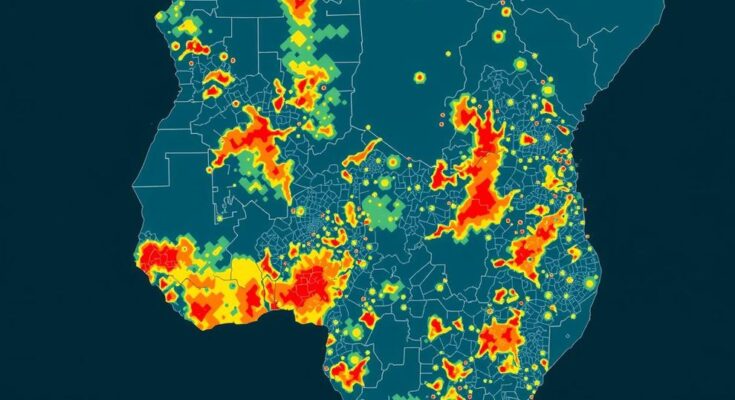Fathom is collaborating with the Malaria Atlas Project to investigate the impact of flooding on malaria risk in Africa, especially in light of climate change. This initiative, funded by the Bill & Melinda Gates Foundation, involves providing flood risk data until the year 2100. Key areas of focus include healthcare logistics disruption, malaria control efforts, and mosquito breeding site evolution.
The collaboration between Fathom and the Malaria Atlas Project aims to analyze the implications of flooding on malaria risk across Africa, particularly amidst the growing challenges posed by climate change. Fathom, a leader in flood risk intelligence, has been tasked to provide comprehensive flood risk data encompassing current and future climate scenarios until the year 2100. This significant initiative, funded by the Bill & Melinda Gates Foundation, explores critical parameters such as the effect of flooding on healthcare logistics, disruptions to malaria intervention strategies, and the alteration of mosquito breeding sites due to evolving flood risks. Noteworthy insights have emerged from this data-driven analysis, shedding light on the intersection of malaria transmission and flood risk in vulnerable regions. Professor Peter Gething, co-head of the Malaria Atlas Project, emphasized that Fathom’s extensive data is crucial in formulating resilient infrastructure strategies tailored to combat both malaria and climate-related disruptions. Dr. Andrew Smith, COO and Co-Founder of Fathom, expressed pride in contributing to this vital initiative, highlighting the necessity for informed decision-making in safeguarding communities from health challenges exacerbated by climate change.
The Malaria Atlas Project, housed within the Kids Research Institute in Australia, seeks to provide an in-depth understanding of malaria transmission dynamics influenced by climate change. Their recent focus on flooding arises from the recognition that increased precipitation and altered weather patterns could intensify the occurrence and distribution of malaria. Understanding the interplay between climate-induced flooding and malaria risk is critical for developing effective public health interventions and improving access to medical services in remote areas.
In conclusion, the partnership between Fathom and the Malaria Atlas Project represents a significant stride toward understanding and mitigating malaria risk exacerbated by climate change. With detailed flood risk data, this initiative aims to inform strategic public health decisions and infrastructure development, ultimately fostering resilience against the dual threats of flooding and malaria in African communities. The ongoing analysis serves to emphasize the urgent need for comprehensive, adaptive responses to ensure the health safety of affected populations.
Original Source: www.africa.com




